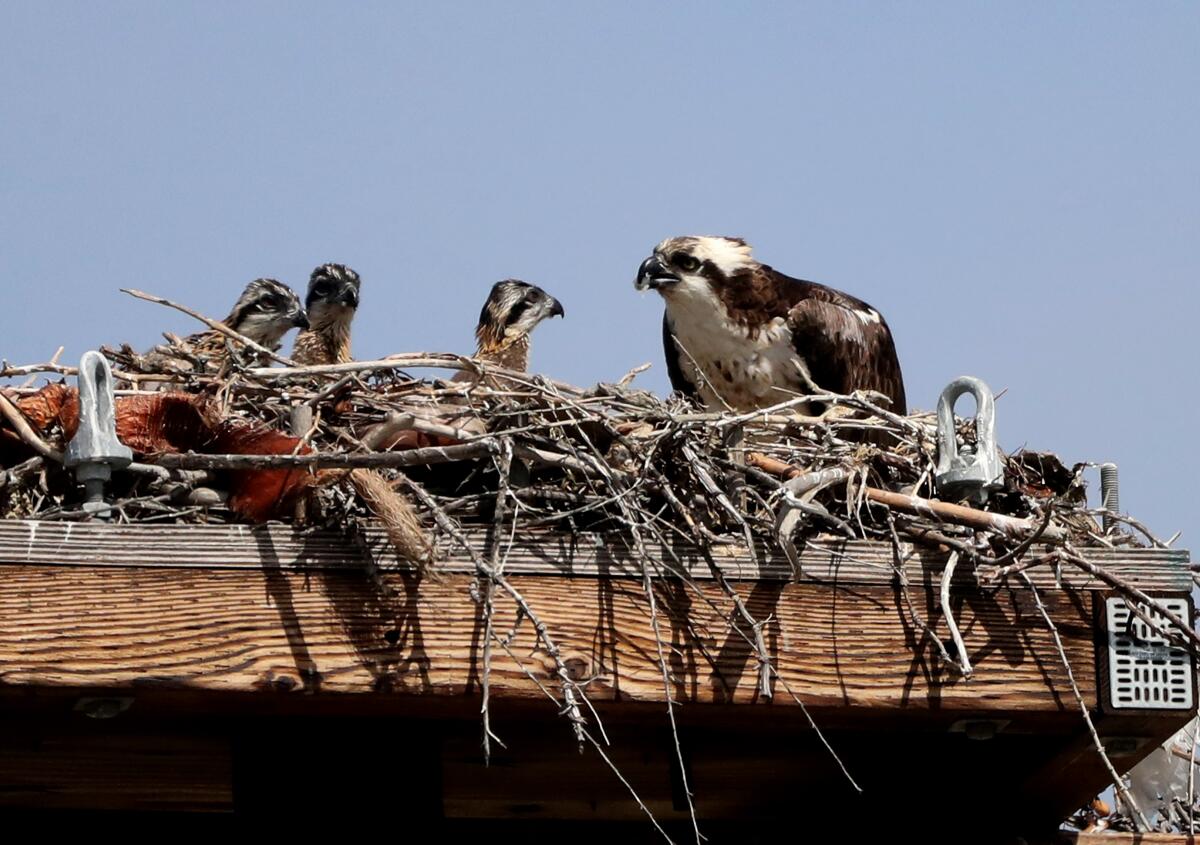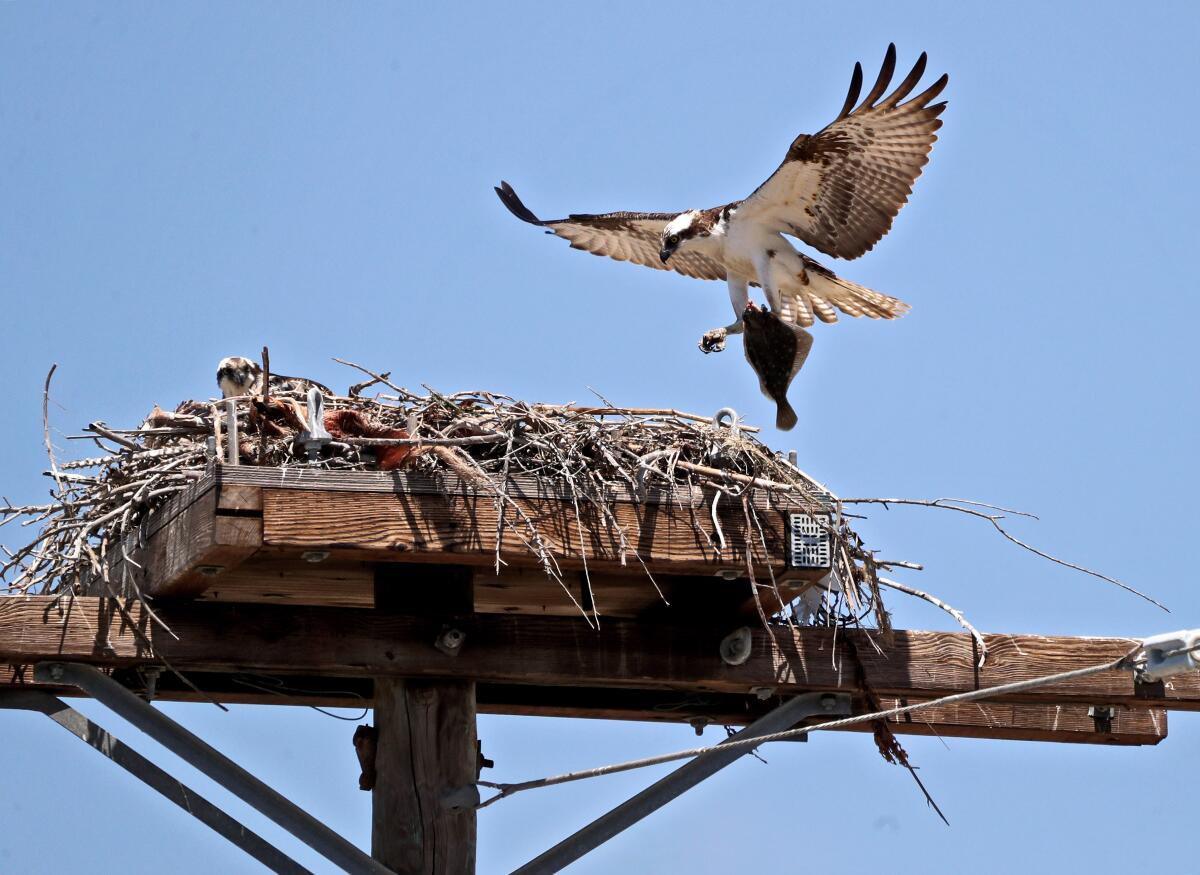Years without chicks, Huntington Beach osprey pair now have a brood to feed

For the past four years, a pair of osprey have nested at the Sunset Aquatic Marina in Huntington Beach without success in raising chicks, according to local residents and wildlife photographers. But this year things are looking up for the avian couple.
This year, the pair have been actively keeping other osprey and hawks away from their nest for good reason. It was recently discovered they have three chicks in the nest they built on a wooden platform at the top of a terminal utility pole.
Photographer John LeeWong, a La Cañada Flintridge resident, said he’s been documenting this pair for two and a half years and he’s not seen chicks at the nest until this spring.
“I’ve never seen chicks up there and I’ve heard from locals that they lay eggs every year but they never hatch [until now],” said LeeWong, adding he has been told by other local photographers this is the first time in at least four years that the osprey have had a successful brood.
For the last four months or so, photographers like LeeWong have captured the male osprey bringing meals of freshly caught spotted bay bass, sanddab and other local ocean delicacies to his mate.

The female, in turn, only leaves the nest to eat what her mate brings her. She takes her part of the fish to a nearby utility or light post and eats while the male remains in the nest watching over their young offspring.
Carole Stelle, of Huntington Beach said she thinks it’s “wonderful” the osprey pair now has a family. She said she walks the area about two to three times a week and finds it “intriguing and amazing to watch these birds that look almost like an eagle [or] sea hawks.”
Susie Nunez, also a local resident, said she brings her children to watch the osprey and that they enjoy it “especially when the bird has a big fish.”
Nunez brings binoculars to get a closer look at the birds. “We are very lucky to have [the osprey] very close to us,” she said.
The brood will fledge about eight weeks after hatching and could stay with their parents for up to two months after that, according to the U.S. Fish and Wildlife Service website.
All the latest on Orange County from Orange County.
Get our free TimesOC newsletter.
You may occasionally receive promotional content from the Daily Pilot.



